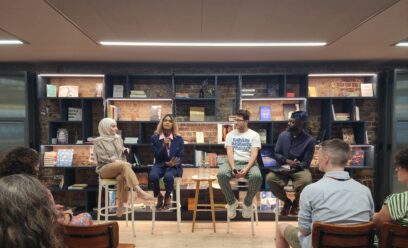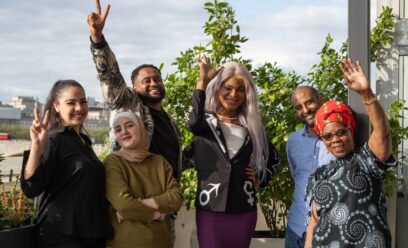International Women’s Day: Dr. Edie Friedman celebrates two remarkable social justice pioneers
Posted by IMIX on March 6, 2020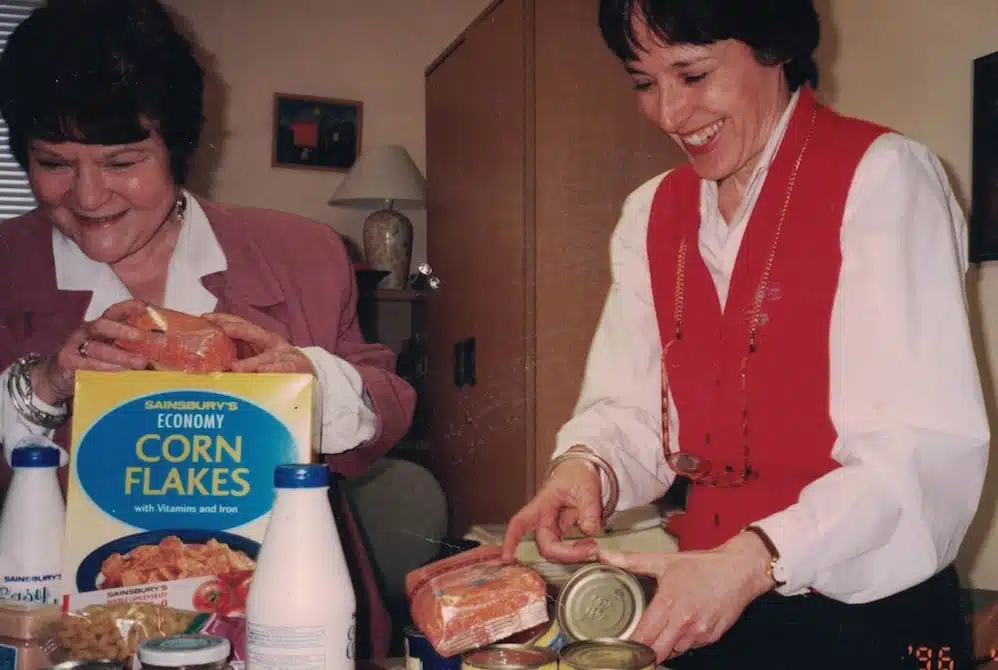
Edie Friedman and Helen Bamber packing food for refugees in 1996.
Dr. Edie Friedman, Executive Director of the Jewish Council for Racial Equality, reflects on the incredible work of June Jacobs and Helen Bamber, two social justice pioneers ahead of their time.
I had the privilege of knowing and working with two social justice campaigners, both of whom remained active in their fields well into their eighties: June Jacobs and Helen Bamber.
June Jacobs CBE (1930-2018) had an inspiring facility for combining an interest in, and a commitment to, causes both inside and outside the Jewish community – not always an easy balancing act. I got to know June when a bout of ‘Russian flu’ (after a trip to visit ‘refuseniks‘ in the Soviet Union) meant an enforced four day stay in June’s home. It gave me the opportunity to witness her formidable intellect, her wicked sense of humour and her delicious cheesecake, which of course aided my recovery.
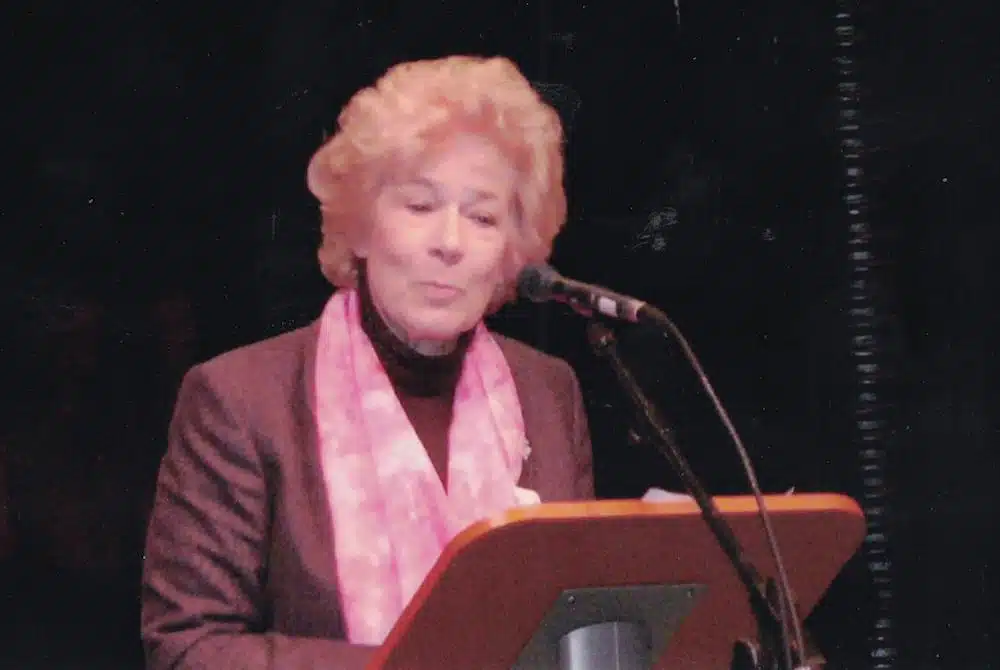
June Jacobs
Her activities included mobilising support for Jews in the Soviet Union, working for justice for Palestinians and Jews in the Middle East, defending the rights of asylum seekers and refugees in the UK, and working for equality for women throughout the world. She was a role model for me when I started the Jewish Council for Racial Equality in 1976.
As a campaigner for social justice in Israel she helped to establish the New Israel Fund in the UK in 1992. A proponent of the importance of dialogue, she was a key player in the initially clandestine Council for Jewish-Palestinian Dialogue, and was also foreign affairs spokesperson for the Board of Deputies of British Jews. In that role she raised both eyebrows and hackles within parts of the Jewish community by meeting the UK representative to the Palestine Liberation Organisation, Bassam Abu Sharif, in 1989. Subsequently she met PLO leader Yasser Arafat through the International Centre for Peace in the Middle East, and was able to dismiss any criticism with the pragmatic argument that: ‘It was just the right thing to do: how else can we attempt to bring peace if we don’t talk?’
More can be discovered about June Jacobs in this obituary which I wrote for The Guardian.
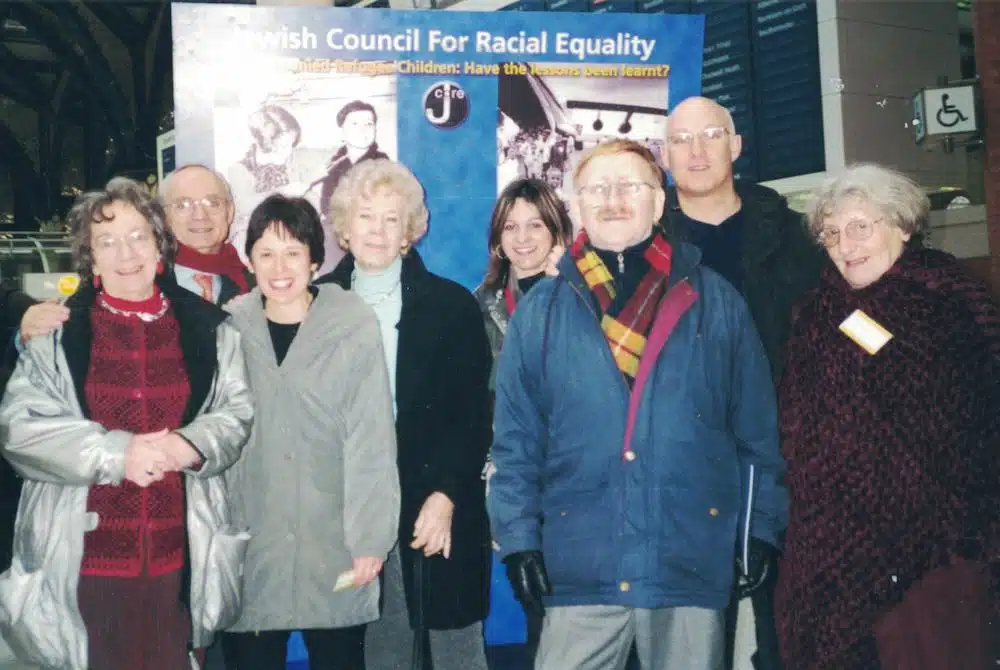
Edie Friedman (3rd from left) and June Jacobs (4th from left) at Liverpool Street in 2001 campaigning about unaccompanied refugee children.
London born Helen Bamber OBE (1925-2014) became a volunteer with the Jewish Relief Unit to help survivors of the Bergen Belsen concentration camp where she worked for more than two years. She had an amazing ability to help restore the dignity of those who had endured and survived unimaginable cruelty, using this skill not only with survivors from Bergen Belsen but with many others who survived torture, trafficking and slavery.
Subsequently she worked for Amnesty and then set up the Medical Foundation for the Care of Victims of Torture (now Freedom from Torture) and at the age of 80, the Helen Bamber Foundation. I got to know Helen during her time at the Medical Foundation – her drive and infectious personality made you feel that making things better for people was really possible.
Comparing her early work with Holocaust survivors in Belsen, she said: ‘I think perhaps then and now – because I am now concerned with present day survivors from over 91 different countries – one is still bearing witness in the same way and that is the first gift you can give somebody who is a survivor’.
What inspiring legacies both June and Helen have left us. It is now up to all of us to continue their work.


